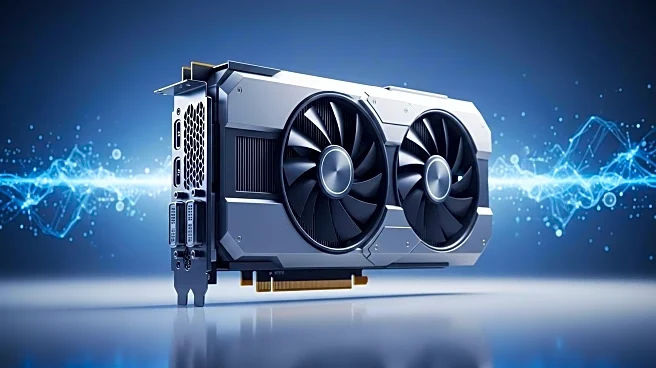What is the story about?
What's Happening?
China has accused Nvidia of violating antimonopoly laws, intensifying scrutiny of the chipmaker amid ongoing trade talks with the U.S. The State Administration for Market Regulation found that Nvidia did not comply with conditions from its 2020 acquisition of Mellanox Technologies. This development comes as U.S. and Chinese officials meet in Madrid to discuss tariffs and national security issues. Nvidia has faced export restrictions from the U.S., impacting its ability to sell advanced chips in China. The company recently received approval to sell its H20 graphics processing unit in China, designed to comply with U.S. export curbs.
Why It's Important?
Nvidia's situation highlights the broader U.S.-China trade tensions, particularly in the technology sector. As a leading chipmaker, Nvidia's operations are central to the semiconductor industry's dynamics, affecting global supply chains and market competition. The antimonopoly accusation could lead to further regulatory challenges for Nvidia, impacting its business strategy and financial outlook. The ongoing trade talks between the U.S. and China may address these issues, potentially influencing future trade policies and technology collaborations.
What's Next?
China's regulators plan to continue their investigation into Nvidia's acquisition of Mellanox Technologies, which may result in further regulatory actions. Concurrently, U.S. and Chinese officials are engaged in trade negotiations, which could lead to agreements on tariffs and technology policies. The outcome of these discussions may impact Nvidia's business operations and the broader semiconductor industry, shaping future trade relations between the two countries.















